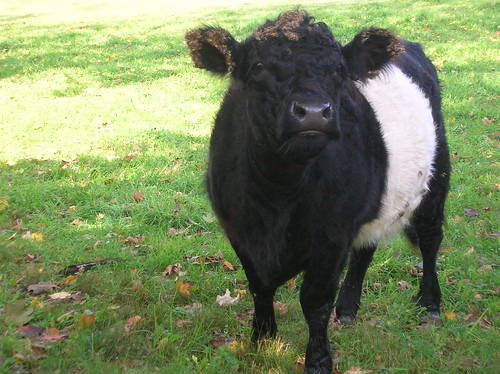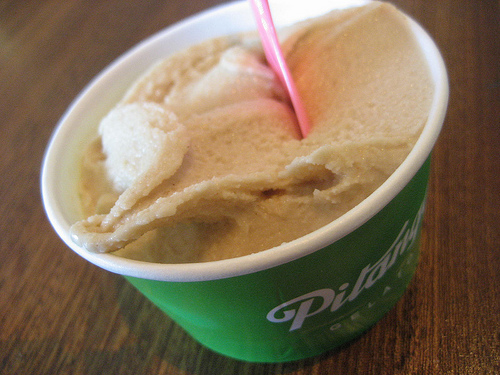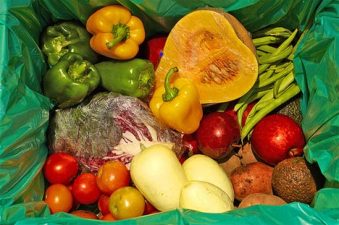Noah Dan has not forgotten the tastes of his childhood. He remembers eating brara, the fruits and vegetables bursting with incredible flavor but too “ugly” to package for sale in the cities, on Kibbutz Givat Brenner, where he was born and raised. He also remembers eating creamy, homemade gelato in Trieste, Italy where he spent summers with his Italian grandparents.
Now a resident of the Washington DC area, Noah is the founder and CEO of Pitango Gelato. Pitango, whose namesake is a variety of cherry that grows wild in Israel, recently opened two new shops in Washington, DC and Reston, Virginia after a successful first run in Baltimore, Maryland. In his attempt to reproduce the gelato of his childhood, Noah has found a way to build a business that is sustainable, conscientious, and produces a very high-end product without the use of chemicals or artificial additives.
Although he describes his model as upside down and risky because he invested about one million dollars to build production capacity before serving his first spoonful, Noah believes customers taste the difference, and the expense was well worth it. “Our gelato and sorbets enjoy a clean, balanced flavor and do not leave behind the unpleasant aftertaste and greasy palate associated with industrial-strength ice cream products,” proclaims Pitango’s website. “Our customers understand the difference in quality and price between the pint of fresh local strawberries that goes into our strawberry sorbet and an artificially flavored product that may go by a similar name.”
Milk that is More than Organic
Although hesitant to market Pitango strictly on its organic credentials, lest he scare away customers who associate “organic” with “healthy and bad-tasting,” Noah’s standards go “way, way beyond organic.” After conducting a search across the mid-Atlantic region for the right milk and cream to form the base of his gelato, he discovered that not all organics are created equal. “You can go into an organic farm and they do things by the letter of the law but they are not with the spirit,” he explains. “I’ve been to those farms. I came out emotionally disturbed.”
Instead, Pitango sources all its dairy products from Spring Wood Organic Farm in central Pennsylvania. Less than one percent of U.S. dairy farms have grass-fed herds, but Spring Wood is one of them. Noah describes Spring Wood owner Roman Stolzfoos as “a guy who really loves his cows.” While the cost of grass-fed organic milk from healthy cows is higher, the quality, flavor, and health benefits justify this cost.
Noah also believes in the benefits and taste of raw milk, noting that every time milk is heating during pasteurization the quality is compromised. U.S. laws that regulate raw milk protect the big dairy industry, he says, because when they skim, pasteurize, and homogenize milk at high temperatures they are able to sell “sick” milk from ill-treated, factory farm-raised cows. “Cows produce five times what a cow body should produce over a long time, so you better treat it as a toxic matter,” Noah exclaims. But he notes that people have long-since believed in the medicinal benefits of raw milk, recalling that once upon a time Shaarei Tzedek hospital in Jerusalem raised cows on the premises to provide raw milk to patients because doctors so strongly insisted upon its medicinal value.
Because Spring Wood’s cows are so healthy and well-treated, Pitango is able to base their gelato on raw milk, which they pasteurize as they prepare each batch to avoid double pasteurization. The difference in taste is immediately evident.
Other Sustainable Ingredients
Besides their grass-fed dairy, Noah and his team will go to great lengths to provide the purest, best-tasting, most authentic gelato possible. Focusing on classic Italian flavors, Pitango Gelato contains no flavorings, colorings, or artificial ingredients whatsoever; “We don’t offer novelty flavors such as blue ice cream or Phish food, because we believe that nature offers its own novelties every season of the year.”
As much as possible, Pitango relies on local, organic fruit for flavors. But Noah has avoided the organic label because he does not want to be “trapped” if he cannot get an organic ingredient. He imports a Bronte pistachios, for instance, from Italy. These nuts are not organic, but they grow wild in the volcanic soil around Mount Etna, and Noah believes their taste is unparalleled.
Conscientious Business Practices
In addition to tasting better and being healthier, Noah believes sustainable business practices are a no-brainer. “It’s just common sense. In recent times people pay more attention to [sustainability], but it’s just common sense. It also makes good business decisions.”
One example of Noah’s sustainable, good business decisions recalls the brara of his childhood. He buys small organic strawberries from a farmer in Pennsylvania. The strawberries burst with flavor, he says, but are too small for the farmer to sell in the city because he can only get a worthwhile price mark-up on large strawberries. But by focusing more on flavor than looks, Noah is able to procure a better-tasting strawberry for a lower price.
Noah also incorporates sustainability into the operation of his stores. “My grandmother said that only very rich people can afford cheap things,” he comments, explaining how, for instance, the reusable metal cannisters he uses to hold his gelato cost $100 each, but they last forever and are ultimately much cheaper than continuously buying disposable paper cartons. The fact that they don’t end up in landfills is an added bonus.
The three Pitango stores also boast display cases that cost more than normal but consume about a tenth of the electricity, and recycle the paper they do use by having a wood-boiling burner as a heat source on Roman’s farm. “We try not to throw away anything. You just have to think a little bit ahead.”
Noah Dan (left) and staff at the Washington DC Pitango Location
A Business Model for Success
Asked about the future of Pitango, Noah muses about opening more stores across the mid-Atlantic region. He explains that the Pitango model is scaleable on a modular level, although not like big industry. The idea is to have one farm that supports a large number of shops, and then repeat the same methods in another region so everything stays fresh and local. It’s not an easy model to execute, but Noah thinks its doable.
“You try to do the right thing, one flavor at a time,” he says. Noah envisions a food culture in which people associate good value with a label like organic, not in the sense of price but in that the food tastes better, is safer, and healthier. “We have a long way to go. I think it’s a fight worth fighting.”
Food politics aside, Noah simply derives joy from watching the joy on customers’ faces when they sample their first Pitango Gelato. For this reason, he concludes, “Every Jewish boy when he gets to my age should probably open a gelato shop.”
:: PitangoGelato.com
Image Credit: Jamie R. Liu, jane in santa fe
For more on organic food and sustainable food:
Tel Aviv Has a Farm, E-I-E-I-O
Kishorit Becomes Organic Utopia For the Mentally Disabled
Subsidized Sustainable Food Tour in Israel in November





Great article. I agree that raw milk-based ice cream is very clearly superior in taste. I’ll definitely be stopping by– to show support… and of course because there is nothing better than Italian gelato.